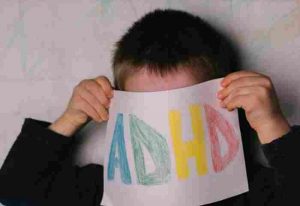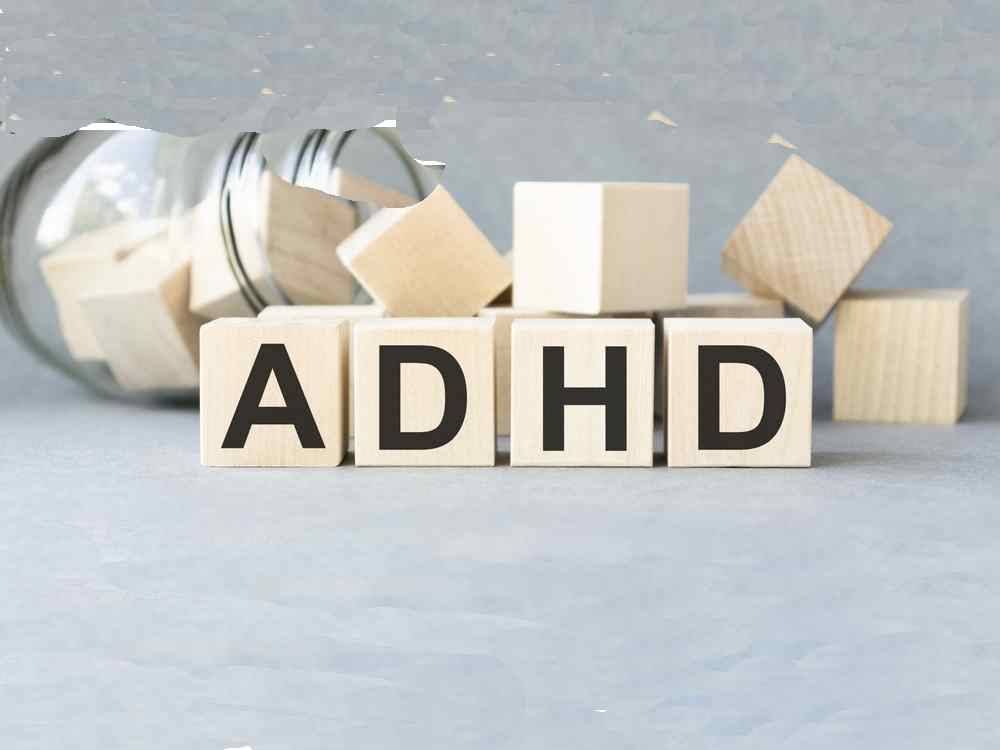What do you know about Attention Deficit Disorder (ADD) and Attention Deficit Hyperactivity Disorder (ADHD)?
Are you concerned about your child’s concentration and performance at school, or even your challenge to keep your focus at work with the result that your work performance is declining?
Attention Deficit Disorder (ADD) and Attention Deficit Hyperactivity Disorder (ADHD)
Attention Deficit Disorder (ADD) and Attention Deficit Hyperactivity Disorder (ADHD) are neurodevelopmental conditions that can significantly impact an individual’s ability to concentrate, focus, and regulate their impulses.
While these conditions can manifest differently, they both pose unique challenges for children in academic settings and adults in the workplace.
In this blog, we will explore the symptoms of ADD and ADHD, examine their effects on school and work performance, and delve into potential reasons for their origin and the increasing prevalence of these conditions.
Differentiating
ADD and ADHD share some common symptoms but differ in the presence of hyperactivity.
ADD primarily involves difficulties with attention, organization, and impulsivity, whereas ADHD includes hyperactivity as a core symptom.
Individuals with ADD may struggle to stay focused, manage time effectively, and control impulsive behaviors. In contrast, those with ADHD display hyperactive tendencies, such as restlessness, excessive talking, and difficulty sitting still.
The diagnostic criteria for these conditions are outlined in the Diagnostic and Statistical Manual of Mental Disorders (DSM-V).
Impact on Children at School
For children with ADD or ADHD, the educational environment can be particularly challenging. Inattentiveness may lead to difficulties in understanding instructions, completing assignments, and maintaining organized study habits.
The impulsivity characteristic of these conditions can disrupt classroom dynamics and hinder social interactions. Consequently, academic performance, self-esteem, and peer relationships may be adversely affected.
However, with appropriate support, accommodations, and interventions, children with ADD or ADHD can thrive academically and socially.

Parents play a crucial role in recognizing the potential symptoms of ADD and ADHD in their children. While a formal diagnosis should be made by a qualified healthcare professional, here are some common symptoms that parents can look out for:
Symptoms of ADD (Attention Deficit Disorder)
- Inattentiveness: Children with ADD often struggle to pay attention to details, making careless mistakes in schoolwork or other activities. They may have difficulty sustaining attention during tasks or appear forgetful.
- Organization and Time Management Issues: Children with ADD may have challenges with organizing tasks, materials, and assignments. They may struggle to complete tasks on time and often lose or misplace items.
- Lack of Focus: Difficulty staying focused on activities or conversations can be a prominent sign of ADD. Children may become easily distracted, have trouble following instructions, and seem disinterested in tasks that require sustained mental effort.
- Forgetfulness: Frequent forgetfulness of daily activities, homework assignments, or appointments can indicate ADD. Children may rely heavily on reminders or prompts to stay on track.
- Impulsivity: While hyperactivity is not a defining characteristic of ADD, some children may display impulsive behaviors such as interrupting conversations, blurting out answers before the question is complete, or having difficulty waiting for their turn.
Symptoms of ADHD (Attention Deficit Hyperactivity Disorder)
- Hyperactivity: Children with ADHD often exhibit excessive motor activity, such as constant fidgeting, squirming, or restlessness. They may have difficulty staying seated and feel compelled to move or run in inappropriate situations.
- Impulsivity: Impulsive behaviors are more prevalent in children with ADHD. They may act without thinking about the consequences, interrupt conversations, and have difficulty taking turns. Impulsivity can also manifest as difficulty controlling emotional reactions.
- Inattentiveness: While hyperactivity and impulsivity are more pronounced in ADHD, children with this type of attention disorder still experience difficulties with attention and focus. They may struggle to concentrate on tasks, lose track of details, and have a tendency to daydream.
- Poor Self-Control: Children with ADHD may have trouble regulating their behaviors and emotions. They might have outbursts of anger or frustration and find it challenging to manage their impulses.
- Social Challenges: ADHD can impact a child’s social interactions, leading to difficulties in making and maintaining friendships. They may struggle with social cues, taking turns, and respecting personal boundaries.
It’s important to note that these symptoms can vary in severity and may present differently in each child. If parents observe persistent patterns of these behaviors, it is advisable to consult with a Psychologist or other professional specialist for a comprehensive evaluation and diagnosis.
Impact on Adults at Work

The impact of ADD and ADHD extends into adulthood, often influencing work performance and professional relationships. Adults with these conditions may struggle to concentrate, prioritize tasks, meet deadlines, and manage time efficiently.
Their impulsivity can result in impulsive decision-making or speaking without considering the consequences. Furthermore, difficulties with organization and attention to detail can hinder job performance and advancement opportunities.
However, with appropriate accommodations, workplace support, and coping strategies, individuals with ADD or ADHD can achieve success in their careers.
Possible Reasons for Origin and Increased Prevalence
The exact causes of ADD and ADHD remain unknown, but research suggests a combination of genetic, neurological, and environmental factors contribute to their development.
Genetic studies indicate a hereditary component, with certain genes influencing brain structure and neurotransmitter functioning. Neurologically, differences in brain regions responsible for attention and impulse control have been observed in individuals with ADD or ADHD.
Environmental factors, including exposure to toxins during pregnancy or early childhood, premature birth, and low birth weight, may also play a role.
The increased prevalence of ADD and ADHD
In recent years can be attributed to several factors. Improved awareness and understanding of these conditions have led to more accurate diagnoses.
Additionally, changes in diagnostic criteria and increased screening efforts have contributed to identifying individuals who may have gone undiagnosed in the past. The modern lifestyle, characterized by increased screen time, information overload, and fast-paced environments, may also exacerbate symptoms of inattention and impulsivity, leading to a higher incidence of these conditions.
Conclusion: ADD and ADHD significantly impact both children and adults, influencing their academic performance and work productivity. Understanding the symptoms and effects of these conditions is crucial for creating supportive environments that cater to individuals’ unique needs.
While the exact causes of ADD and ADHD are still being studied, a combination of genetic, neurological, and environmental factors appears to contribute to their origin. As awareness continues to grow, it is essential to promote early identification, effective interventions, and a comprehensive approach to support individuals with ADD or ADHD throughout their educational and professional journeys.
The Importance of Professional Diagnosis and Support for ADD and ADHD
When parents suspect that their child may have ADD or ADHD, seeking a professional diagnosis from a qualified psychologist is crucial. While it may be tempting to rely solely on personal observations or self-diagnosis, a comprehensive assessment by a professional is essential for accurate diagnosis and effective treatment.
Here’s why:
- Accurate Diagnosis: ADD and ADHD are complex conditions with overlapping symptoms, and other factors can mimic their signs. Dr. de Villiers has a special interest in neurodevelopmental disorders and can conduct a thorough evaluation, considering various aspects like medical history, behavioral observations, and standardized assessments. Her expertise ensures an accurate diagnosis, ruling out other potential causes and providing clarity for appropriate intervention.
- Tailored Treatment Plan: A professional diagnosis serves as a foundation for developing a personalized treatment plan. Treatment approaches for ADD and ADHD often involve a combination of strategies, including behavioral interventions, educational support, and, in some cases, medication. She can recommend the most suitable interventions based on the individual’s unique needs and circumstances.
- Access to Resources and Support: Being a Psychologist who also specializes in ADD and ADHD she can provide valuable guidance and support for both the child and their parents. She can educate parents about the condition, offer coping strategies, and provide information on available resources such as support groups, educational programs, or occupational therapy. She can also collaborate with teachers and school staff to implement appropriate accommodations and support in the academic setting.
- Skill Development: Being an experienced psychologist, Dr de Villiers can help individuals with ADD or ADHD develop essential skills to manage their symptoms effectively. She can provide tools and techniques for improving attention, organizational abilities, time management, and impulse control. By learning these skills, individuals can enhance their academic performance, work productivity, and overall quality of life.
- Emotional Well-being: ADD and ADHD can have a significant impact on an individual’s emotional well-being. The challenges they face in academic or work settings, as well as potential social difficulties, can lead to frustration, low self-esteem, and anxiety. Dr de Villiers can address these emotional aspects, providing support, guidance, and strategies to enhance self-confidence, resilience, and emotional regulation.
- Lifelong Management: ADD and ADHD are lifelong conditions and managing them effectively requires ongoing support and monitoring. She can provide long-term guidance, helping individuals and their families navigate challenges at different stages of life, from childhood to adolescence and adulthood. Regular check-ins with Dr de Villiers can ensure that treatment plans remain appropriate and adapted to changing needs.
Please call Dr. Leonora de Villiers 082 497 3765 to make an appointment for a professional accurate assessment and diagnosis. She will help you with a tailored treatment plan, and the acquisition of the necessary essential skills for the management of your challenges. With proper guidance and intervention, individuals with ADD or ADHD can overcome challenges, optimize their potential, and lead fulfilling lives, improving their overall well-being and quality of life.


